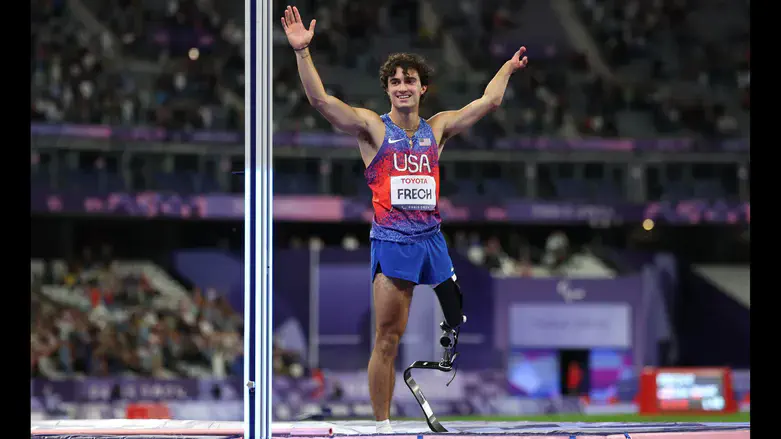
Ezra Frech entered the Paris Paralympics as one of the United States’ most promising rising stars. The 19-year-old, who had broken his own world record in the high jump in July, has lofty standards for himself, telling NBC earlier this year, “I want my legacy to be the greatest Paralympian of all time.”
He made significant progress toward that goal over the past two days as he won his first two gold medals in Paris.
Frech, who was born missing his left knee and shinbone and with only one finger on his left hand, took gold in dramatic fashion on Monday in the men’s 100-meter T63 final, beating the German silver medalist by two hundredths of a second.
Frech got off to a slow start but picked up ground and leaned his head forward at the finish line to nab the gold with a time of 12.06 seconds.
“I crossed the line. I had no idea, looked up, saw my name first,” Frech told NBC. “Not what I was expecting, but, damn, am I hyped.”
On Tuesday, Frech followed up his photo finish with another gold medal, this time in the high jump event he was favored to win.
Frech’s 1.94-meter jump not only won gold — beating the Indian silver medalist by .06 meters — but it also set a new Paralympic record. Frech barely missed his own world record of 1.97 meters.
He had also won gold medals in the high jump event at the 2023 World Championships and the 2019 World Junior Championships.
At the 2028 Games, which will take place in Frech’s hometown of Los Angeles, he hopes to earn what he calls the “triple crown” — winning gold in the long jump, high jump and 100-meters. In Paris, he’ll settle for two out of three, as he finished fifth in the men’s long jump T63 on Saturday.
Frech, whose mother is a Jewish actress who was born in Iran, committed earlier this year to the University of Southern California, making him the first above-the-knee amputee to be recruited to a Division I program, where he’ll compete against athletes without disabilities.
In addition to his ambitions on the track, Frech said in April that he wants “to be known as someone who changed the way the Paralympics are viewed forever,” and, “someone who normalized disability on a global scale and was an example of what is possible as an amputee.”